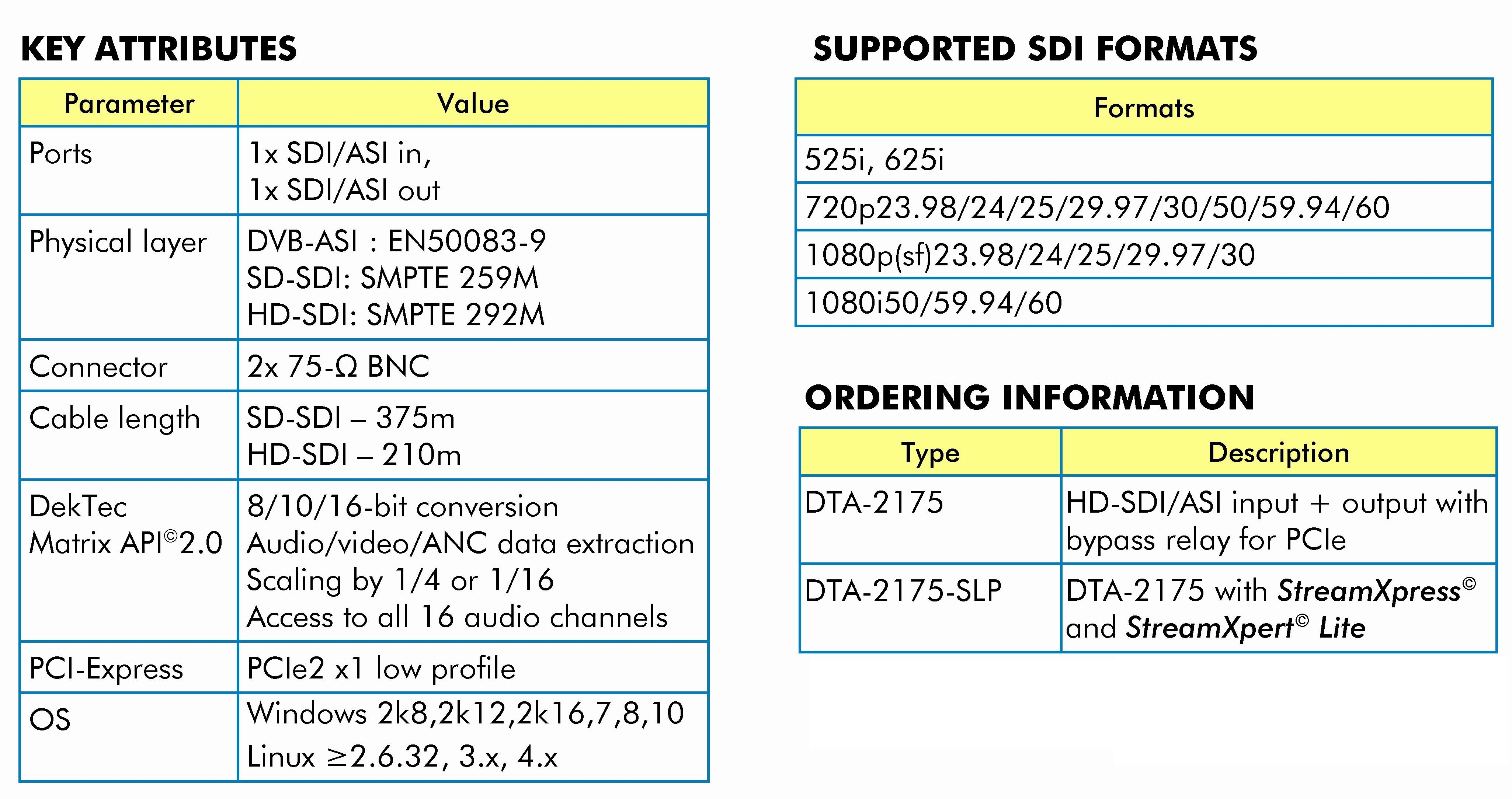- PRODUCTS產品應用
- 實驗室測試需求
- Dektec
- PCIe調變與接收卡
- ASI/SDI/IP收發卡
產品明細
DTA-2175HD-SDI/ASI I/O
產品簡述
♦ 透過軟體可配置為HD-SDI, SD-SDI或DVB-ASI
♦ 當應用程式中斷或PC斷電時, 內部繼電器會自動將輸入連接到輸出
♦ 提供DekTec Matrix API 2.0編寫操控應用程序
產品詳細介紹Product Introduction
HD-SDI/ASI input+output with relay bypass for PCIe
A general-purpose HD-SDI input and output, both ASI capable. A relay automatically connects input port to output port upon software- or hardware failures, enabling highly-available system configurations without requiring a failover switch.
Features
- General-purpose input and output port that can be independently programmed to operate in HD-SDI, SD-SDI or DVB-ASI mode.
- Relay automatically connects input to output upon application crash or PC power failure.
- DekTec Matrix API® 2.0 provides convenient access to video, audio and ANC-data.
Applications
- Low-latency extraction and/or insertion of video-, audio- or ANC data, e.g. logo/subtitle inserter, audio embedder, etc.
- HD-SDI (or ASI) playout and/or capture;
HD-SDI-in, ASI-out software encoder. - Analyze and/or monitor SDI with SdEye;
Analyze Transport Streams with StreamXpert.
Block Diagram
SDI and ASI input flows from port 1 through equalizer, deserializer, processing (encoding in a format suitable for transmission to PC) and DekTec's highly optimized DMA controller. The output flow to port 2 is very similar, but in the other direction.

If the PC power fails, or the watchdog times out, the relay falls back to its inactive position, connecting the input directly to the output.
High Availability with the DTA-2175
The relay bypass on the DTA-2175 enables a simple though effective way to create a highly-available HD-SDI (or ASI) generator as shown in the diagram below.

Both PCs run the same application. Normally, HD-SDI output originates from PC1. If PC1 fails (software crash or power failure), the relay will automatically fail over to PC2, bypassing PC1.
DekTec Matrix API® 2.0
The Matrix-API framework decodes incoming SDI data into pixels (in a programmable format), audio samples and ANC data structures. When a new frame has been received, the framework calls a user-supplied "frame-processor callback" for processing of the data. The user callback can create output video, audio and ANC data. which is encoded by the framework into SDI frames.
Synchronization of multiple input streams is straightforward: The video/audio/anc data of all SDI frames supplied to the callback function have the same arrival time by definition. Past frames can be accessed by an integer frame index. The framework ensures that if frames from different input ports have the same frame index, they have entered the system at the same time instance.
Specifications
